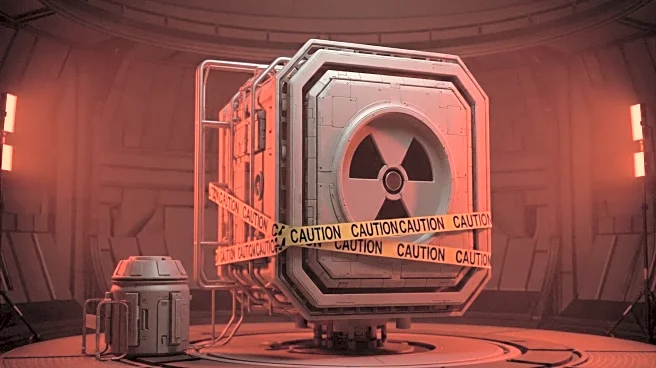What is the story about?
What's Happening?
The recent disaster in Japan, involving a spike in radiation and fears of a potential meltdown at a nuclear power plant, has reignited global concerns about the safety of nuclear energy. Experts are questioning the wisdom of building nuclear plants in seismically active areas, as seen in Japan. The incident has drawn comparisons to past nuclear accidents, such as Chernobyl in 1986, highlighting the inherent risks associated with nuclear power. Despite advancements in technology, the nuclear industry is criticized for not being fully prepared for such disasters. The situation in Japan is still unfolding, with significant releases of radioactivity reported, and the full extent of the damage remains unclear.
Why It's Important?
The disaster in Japan has significant implications for the global nuclear industry, potentially affecting public perception and policy decisions. Countries may reconsider their nuclear energy strategies, opting for less risky alternatives. The incident underscores the need for a transition to cleaner energy sources, reducing reliance on fossil fuels and nuclear power. The economic impact is also notable, as flooding a reactor with seawater, as done in Japan, effectively writes off the reactor, representing a substantial financial loss. The event may lead to increased safety measures and redundancies in nuclear plants, potentially raising costs and influencing the industry's future viability.
What's Next?
In response to the disaster, countries like Switzerland have already suspended their nuclear development plans. A global review of nuclear safety is anticipated, which could lead to stricter regulations and increased costs for nuclear energy. The incident may prompt other nations, particularly those with significant nuclear projects like China, to reassess their nuclear strategies. The long-term impact on the nuclear industry will depend on the severity of the disaster's consequences and the effectiveness of the industry's response in managing the crisis and restoring public confidence.
Beyond the Headlines
The disaster raises ethical and environmental questions about the continued use of nuclear energy, especially in regions prone to natural disasters. It highlights the need for a balanced approach to energy policy, considering both the risks and benefits of nuclear power. The incident may also influence cultural attitudes towards nuclear energy, potentially leading to increased advocacy for renewable energy sources and a shift in public opinion against nuclear power.















